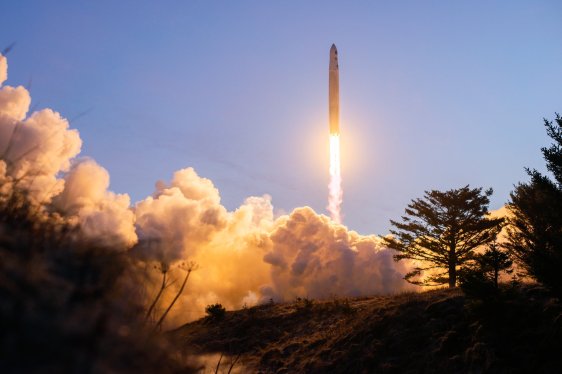In a shocking turn of events, Astra Space, the launch company that went public in 2021 at a valuation of $2.1 billion, is set to go private once again after months of struggling with cash flow issues and failing to secure alternative investments.
The Rise and Fall of Astra Space
Astra’s meteoric rise began when it completed its SPAC (Special Purpose Acquisition Company) merger in 2021, raising nearly $500 million from investors on the promise of an ultra-cheap launch vehicle that could be scaled to execute hundreds of missions per year. The company touted a "mass-produced portable launch system" that could launch from anywhere in the world and achieve a bi-weekly launch cadence by 2024.
However, Astra’s ambitious plans were met with significant challenges. Despite reaching orbit twice, the company faced numerous setbacks, including a worrying sideways launch anomaly in 2021 and several failed commercial launches over the years. Chris Kemp, Astra’s CEO, suggested that failure rates were less critical as long as the frequency of launches increased.
The Struggle to Turn Apollo Fusion into Revenue
Astra acquired Apollo Fusion, an electric propulsion developer for spacecraft, with the aim of integrating those systems into an Astra satellite constellation. However, this ambitious project never came to fruition, and while the company did succeed in selling many Apollo Fusion propulsion systems, it struggled to turn that backlog into revenue.
The Proposal to Go Private
Last November, Kemp and London proposed taking the company private at $1.50 a share – roughly double the price the stock was trading at then. After this proposal stalled, they submitted an even more revised offer of $0.50 per share. A special committee of the board assembled to review Astra’s options warned in a filing that the only alternative to Kemp and London’s proposal was bankruptcy.
The Future of Astra Space
The deal is expected to close in the second quarter of 2024, at which point Astra will cease trading on the Nasdaq. This marks a precipitous fall for the company, which had such high ambitions just a few years ago. The question now is what this means for Astra’s future plans and whether it can recover from its recent struggles.
A Timeline of Astra Space’s Struggles
- February 2021: Astra completes its SPAC merger, raising nearly $500 million from investors.
- 2021: Astra reaches orbit twice but faces a series of setbacks, including an alarming sideways launch anomaly and failed commercial launches.
- Last November: Kemp and London propose taking the company private at $1.50 a share.
- Early January 2024: The special committee warns that the only alternative to Kemp and London’s proposal is bankruptcy.
What This Means for the Space Industry
Astra’s struggles serve as a reminder of the challenges facing the space industry, including high development costs, regulatory hurdles, and intense competition. While Astra’s ambitious plans may have been overly optimistic, they also highlight the potential for innovation and growth in the space sector.
What’s Next for Astra Space?
As Astra prepares to go private once again, it remains to be seen whether the company can recover from its recent struggles. Will Kemp and London’s revised offer of $0.50 per share be enough to secure their proposal, or will Astra face a new wave of challenges in its private incarnation? Only time will tell.
A Brief History of Astra Space
- 2021: Astra completes its SPAC merger, raising nearly $500 million from investors.
- 2021: Astra reaches orbit twice but faces a series of setbacks, including an alarming sideways launch anomaly and failed commercial launches.
- Last November: Kemp and London propose taking the company private at $1.50 a share.
The Rise and Fall of Astra Space’s Ambitious Plans
Astra initially aimed to revolutionize the space industry with its ultra-cheap launch vehicle, which could be scaled to execute hundreds of missions per year. However, this ambitious plan was met with significant challenges, including:
- High development costs
- Regulatory hurdles
- Intense competition
The Struggle to Turn Apollo Fusion into Revenue
Astra acquired Apollo Fusion, an electric propulsion developer for spacecraft, with the aim of integrating those systems into an Astra satellite constellation. However, this ambitious project never came to fruition.
The Future of Astra Space
As Astra prepares to go private once again, it remains to be seen whether the company can recover from its recent struggles.
This is a developing story, and we will continue to provide updates as more information becomes available.

